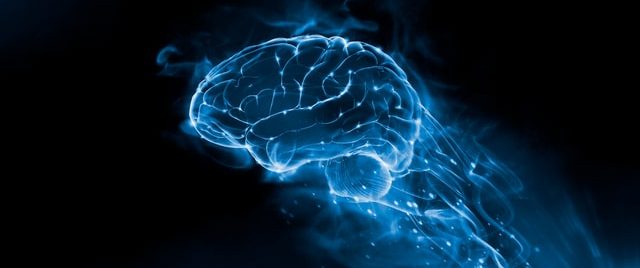 The Court of Appeals for the Federal Circuit has backed the District Court for the Eastern District of Virginia’s finding that an artificial intelligence (AI) system cannot be named as the inventor of a patent. The Federal Circuit decision follows a growing consensus among global courts and patent offices that a valid patent must name a human inventor, even if an AI system made key contributions to the invention.
The Court of Appeals for the Federal Circuit has backed the District Court for the Eastern District of Virginia’s finding that an artificial intelligence (AI) system cannot be named as the inventor of a patent. The Federal Circuit decision follows a growing consensus among global courts and patent offices that a valid patent must name a human inventor, even if an AI system made key contributions to the invention.
The case arises from a series of patent applications filed in various patent offices around the world by Dr Stephen Thaler, a Missouri-based engineer, for inventions relating to food and beverage containers and methods for attracting enhanced attention. In each of the patent applications, Thaler identified an AI system he created called DABUS as the sole inventor. Thaler claimed that DABUS was not programmed to solve any particular problem nor trained on any data, but had independently conceived of the inventions and was therefore their true inventor.
The USPTO rejected Thaler’s applications, reasoning that the Patent Act limits “inventors” to natural persons, and because Thaler failed to identify a human inventor, the applications must be refused. Thaler challenged the USPTO’s decision by way of appeal to the district court. The district court granted summary judgment in favor of the USPTO, a decision which Thaler in turn appealed to the Federal Circuit.

In deciding to uphold the district court rejection of Thaler’s applications, the court adopted many of the prevailing arguments from the district court, finding in particular that the Patent Act unambiguously limits the term “inventor” to human creators. Judge Leonard Stark, writing for the Federal Circuit panel, noted that the Patent Act expressly identifies inventors as “individuals”. Although the term “individual” isn’t defined by the Patent Act, the Federal Circuit construed the term in light of Supreme Court precedent interpreting the word in other statutory contexts, as well as its dictionary definition, both of which suggest that only natural persons can be “individuals”. The court also considered how the term was used in the context of the Patent Act to conclude that it may only apply to humans; the Patent Act uses personal pronouns (i.e., “himself” and “herself”) in referring to individuals, rather than impersonal pronouns (i.e., “itself”). Moreover, the Patent Act requires an oath or declaration from the inventor that “such individual believes himself or herself to be the original inventor or an original joint inventor of a claimed invention” and there was nothing in the record to suggest that an AI system could hold such a belief. Turning to the meaning of the word “inventor” itself, the Federal Circuit panel cited examples in its own jurisprudence, examining whether corporate or sovereign bodies could qualify as inventors, which indicate that only natural persons can be inventors.
The court rejected Thaler’s various statutory arguments that an AI system can constitute an inventor under the Patent Act. In response to Thaler’s observation that section 101 of the Patent Act states that “whoever” invents a new and useful invention shall be entitled to a patent, the Federal Circuit noted that such entitlement is subject to the requirements laid out in the other sections of the Patent Act. Thaler next turned to a provision in section 103 that cautions that patentability should not be conditioned on the “manner in which the invention was made” and therefore patent law must not distinguish between inventions made by humans and AI inventors. To this contention the court responded that this wording has long been cited simply to establish that inventions deriving from routine bench experimentation (i.e., not just those that result from a “flash of genius”) can attract patent protection.
Because the court found that the text of the Patent Act unambiguously requires a human inventor, it did not need to address Thaler’s additional arguments based on policy and constitutional considerations. Nevertheless, the Federal Circuit, following the lead of the district court, tersely dismissed these points. It found Thaler’s contention that allowing AI inventions would encourage invention and public disclosure — key policy objectives underlying the patent system — to be speculative and lacking foundation. Likewise, the court readily dismissed the notion that the principle of constitutional avoidance required AI systems like DABUS to qualify as inventors.
The Federal Circuit’s affirmance adds to the growing international consensus disfavoring AI inventorship based on statutory interpretation. Already courts in Germany, the United Kingdom, and Australia (as well as the Legal Board of Appeal of the European Patent Office) have ruled out the possibility of an AI system being designated as the sole inventor of a patent. While the reasoning of these judgments has varied based on the specific laws of those respective jurisdictions, they share a strong disinclination to credit expansive policy arguments where there is clear statutory text to dispose of the issue. It is becoming increasingly apparent that any change to allow AI inventorship will likely need to come from legislatures and policymakers, not the courts. What is less clear is whether there is any impetus to do so soon – for example a recent UK Government consultation on AI and IP concluded that AI is generally not considered advanced enough to make inventions without some human intervention or involvement and so there is no need to make changes to UK patent law now – though the Government did commit to “seek to advance AI inventorship discussions internationally to support UK economic interests”.
Written by Tanvi Shah, Senior Associate, Baker McKenzie and Avi Toltzis, Knowledge Lawyer, Baker McKenzie
| MORE NEWS | | WRITE FOR OUR NEWSLETTER |











